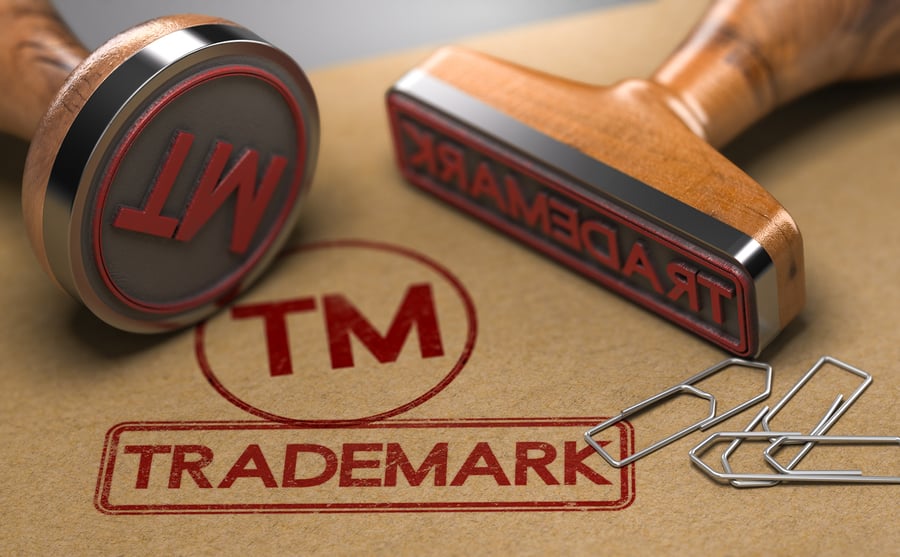
As an online merchant, you must understand the financial risks in the eCommerce industry. Understanding the risks gives you the know-how to navigate online retail challenges smoothly, especially if acquiring banks label you as a high-risk merchant.
Because of the nature of eCommerce, criminals may exploit your online business for illegitimate purposes. Fraudsters continue to target unsuspecting businesses by placing digital orders, receiving the service or product, and deliberately filing a chargeback.
Data shows a 30% growth in online retail fraud in 2017, which was double the speed of the rate of total eCommerce sales. Additionally, chargeback scams took about more than six billion dollars in merchandise and revenue losses in the eCommerce industry in 2016.
Aside from fraud, you may encounter various privacy and security issues in the eCommerce industry if you don't adopt preventing measures.
Advanced technologies allow cybercriminals to break into your site and bypass security measures. Yearly, the e-business industry experiences about 32.4% of successful security and privacy threats.
Common Risks in eCommerce
1. Identity Theft
Around 71% of online merchants are worried about identity theft issues. This is because more than 450 million personal information records were jeopardized in 2018 alone. Most criminals steal identities through phishing scams. They can use stolen credit card information to make online transactions.
2. Low SEO rank
Search engines always change their algorithms. Google, for example, changes its search algorithm about 600 times every year. You may be on the top of search engine results page today, but your website traffic may drop significantly overnight.
3. Intellectual Property Violation
Intellectual property may be neglected most of the time, but it's the component that bears the highest value in the eCommerce industry. Note that intellectual property violation doesn't only pertain to the simple stealing of your website logos, content, taglines, and images.

Due to intellectual property violations, trade secrets are revealed that can lead to unjust competition. Hard work is ripped off without compensating the originator for the labor. This can then cause a huge financial loss in your online business.
4. Weak Electronic Authentication and Transaction Methods
Around 25% of data infracts are largely directed towards payments in eCommerce businesses. If you have weak authentication and transaction methods, your site may be prone to several cyberattacks. You must have strong authentication and transaction methods so your system can withstand these attacks.
5. Bad Customer Service
Bad customer service, including wrong deliveries, slow turnaround times, and failure to resolve an issue on the first call can hurt your eCommerce business. In fact, around 44% of customers will entirely switch to a different brand if they experience negative treatment in your business.
Notwithstanding the many risks in eCommerce, it is still regarded as "the ultimate future" of retail. Indeed, it’s expected that over two billion people will buy products and services through online businesses in 2021. Given these numbers, abandoning the e-business market may not be the best decision to make if you're looking for prosperity.
What Businesses Are Considered "High Risk"?
Acquiring banks may label your business as "high risk" depending on several factors.
Being a high-risk merchant means that you need to go through a censoriously extensive Know-Your-Customer (KYC) process before obtaining merchant or financial services.

As a high-risk merchant, you won't be qualified for traditional processing of payments. Transactions every month may also be restricted, and a specific amount of cash reserve may be demanded.
If you are labeled as a high-risk merchant, banks may turn you down. For this reason, you have to find a reliable merchant service provider that offers high-risk merchant accounts and can take in liability for your heightened risks.
These payment processing specialists may specialize in the very industry you are in and may genuinely help you when expected risks come about.
Factors that identify high-risk online businesses include:
Your Business's Industry or Clientele
Your industry and online customer base may determine whether you will be labeled as a high-risk merchant or a low-risk merchant. Some industries have bigger risks than others.
Examples of these industries include:
- Gambling
- Financial services
- Adult toys
- Legal services
- Cigarette
- Travel and hospitality
- Health and wellness
- Software
- Firearms
- Bail bonds
- Dating websites
- Online auctions
- Drug Stores
- Pharmacy
- Electronics
- Gaming
- Insurance
- Infomercials
- Multi-Level Marketing
- Ticketing Agencies
- Nutraceutical
- Telemarketing
- Financial Services
- Jewelry
Online Fraud Risks
If you don't have a high-security infrastructure for your eCommerce business, you are at risk for online fraud. Many merchant service providers are not keen on working with eCommerce merchants at risk for increased online fraud incidents.
Frequent Chargebacks
When chargebacks are issued, you will be accountable for the losses. If your eCommerce business has a reputation for excessive chargebacks, acquiring banks may label you as a high-risk merchant.
You must assess where these chargebacks are coming from, as fraudulent acts may drive them. It can also mean that your customer service requires improvement.
Number of Years as a Business
Your status as a high-risk merchant may also depend on how young or old your eCommerce business is. Evidently, new businesses in the industry may need to prove themselves before receiving ideal status designations and rates from merchant service providers.
High Volume of Transactions
If your eCommerce business processes hundreds or thousands of transactions per day, your enterprise has an overall higher financial risk. There is a bigger risk that criminals may try to take away data and credit card information because of this.
Lengthy Delivery Time
Lengthy delivery times may result in mishaps. Anything can go wrong on the road, which may damage your products. This then puts your business at risk of encountering losses. For this reason, your eCommerce enterprise becomes a risk for the merchant service provider.

While most eCommerce businesses are classified as high-risk because they generally experience online fraud and scams at higher levels, not all e-businesses are labeled such.
Providers will label your eCommerce business as a low-risk merchant if it meets the following standards:
- Your eCommerce enterprise has a regular sales volume of $20,000 or less
- You have an average transaction value or ticket size of $50 or less
- You utilize 3D Secure (3-domain secure) processing to prevent fraud
- Your business operates in low-risk industries like home goods, books, apparels, virtual assistant provider, consulting, and more
- You do business in a single currency form
- Your business is located in low-risk locations like the US, Canada, Australia, South Korea, Japan, Singapore, and more
- Your business has little-to-no chargebacks
- Your business has minimized returns
Saving Your Business with A High-Risk Merchant Account
High-risk merchant accounts are any payment processing accounts for businesses that are considered high-risk or are likely to experience losses. These merchant accounts for high risk businesses come with a requirement for paying larger rates for merchant services.
If your eCommerce business is considered high risk, the acquiring bank may put a rolling reserve on your merchant account.
This rolling reserve will make sure that your account has sufficient ready cash or liquidity if your customers or the credit card holders claim a large chargeback amount. The money may also cover possible fraudulent incidents.
Benefits of High-Risk Merchant Accounts
While having merchant accounts for high risk businesses means higher processing fees, high-risk merchant accounts also come with certain benefits. In fact, some eCommerce business owners actually prefer high-risk payment processors because of advantages that traditional payment processors don’t have. These benefits include:
Compliance to PCI
High-risk merchant accounts are Payment Card Industry Data Security Standard (PCI) compliant. This means that the provider follows operational and technical standards to protect the data made through every processing transaction.
Note that if a data breach comes about and you don't comply with current PCI standards, you may need to pay fines and penalties that range from $5,000 to $500,000.
Immense Support
If you chanced upon a reliable provider, your high-risk merchant account could provide your business with a vast amount of support that may even go past the level of your future needs.
The provider may even provide technical support so your business can smoothly operate. They may also assist in the specifics of payment transactions.
Advanced Security Standards
Evidently, providers won't easily agree to work with you if your eCommerce business finds itself in the category of a high-risk industry.
These providers will employ elevated security and privacy standards to make sure that every card used in payments is authentic. Having a high-risk merchant account means taking advantage of these security measures so you won't experience significant losses. This advanced security system also protects the owner of the card from fraud.

Other benefits of a high-risk merchant accounts are:
- Increased sales volume allowances
- Multi-currency options
- Recurring billing
Before you take advantage of a high-risk merchant account, you must make sure that you work only with trusted providers. Working with a trusted provider is key to protecting your eCommerce business.
Most of these providers have the essential know-how in the industry, and they understand the importance of staying compliant and up to date on all regulations.
Applying Chargeback Prevention Methods
A chargeback is one of the most feared eCommerce frauds. While considered as "friendly fraud," it can cause significant losses to eCommerce businesses.
Ecommerce businesses lose about $3.94 for every $1 from each chargeback transaction. This can really hurt businesses, especially considering how 40% of consumers filing a chargeback will likely do it again in 60 days.
According to statistics, about 80% of customers file a chargeback instead of obtaining a refund from the merchant itself because it's an easier option.
Cardholders dispute charges to their credit cards, which then forces the acquiring bank to carry out a refund, thinking that the eCommerce merchant made a mistake.
This may explain the high fraction of invalid disputes. Around 78.6% of processing chargeback errors went through mistakenly.
Since chargebacks are becoming a major problem for the eCommerce industry, you ought to learn how to deal with it so you can save money in the long run. You may do the following to prevent them from occurring in the future:
Timely Shipping of Orders
Most chargebacks happen because of delayed shipping. If your customers’ orders haven't arrived on time, they may think that they got scammed.
This can be the case if your eCommerce business is relatively new in the industry. You are essentially unknown for many, so your consumers may think that you ripped them off because of untimely shipping.
You may want to partner with reliable delivery service providers since 43% of consumers expect businesses to have much faster delivery times.
Provide Exceptional Customer Service
Did you know that around 80% of people don't repeat their purchases from a business due to bad customer service?
To avoid losing customers and unnecessary chargebacks, you may want to invest in excellent customer service. Having an easily accessible customer support team means your customers won't have to direct their concerns to credit card providers.
Find a Payment Processor with Excellent Merchant Support
You don't have to choose the cheapest processor. If you're looking for a great investment, choose a processor that provides the best merchant support.
When you receive unlawful chargebacks that amount to thousands of dollars, you would want to follow it up with a dispute. In these situations, you'll want to ensure that the process will be as smooth as it can to be.
Thankfully, a reliable payment or credit card processor can help you verify the legitimacy of these chargebacks. You may even use mobile processing apps for convenience. Some of the most renowned credit card processors with generous merchant support include the following:
- Merchant One
- PayPal
- Square
- Helcim
- Flagship Merchant Services
- Stripe
- Sam's Club Point of Sale by Clover
Establish Fraud Monitoring Procedures
As an online merchant, assuming that all the purchases on your eCommerce platform are legitimate is a big mistake. Always be cautious and establish fraud detection procedures as necessary.
Here are some things you can do to avoid fraudulent transactions:
- Require Card Code Verification (CVV) and Address Verification (AVS) in your payment gateway
- Update your shopping cart software at all times
- Ensure that the billing addresses of your customers match their IP locations
- Create a list of fraudulent attempts to avoid them in the future
- Perform staff training on fraud risk awareness
Conclusion
Although eCommerce can come with a variety of financial risks, don’t let that deter you from starting your online business. Any business comes with risks, but that’s part of paving your own path. With the right security measures in place and the best payment processors on your side, you’ll be able to avoid fraud whenever it comes.
Is this article helpful? Comment your thoughts below!





Leave a reply or comment below